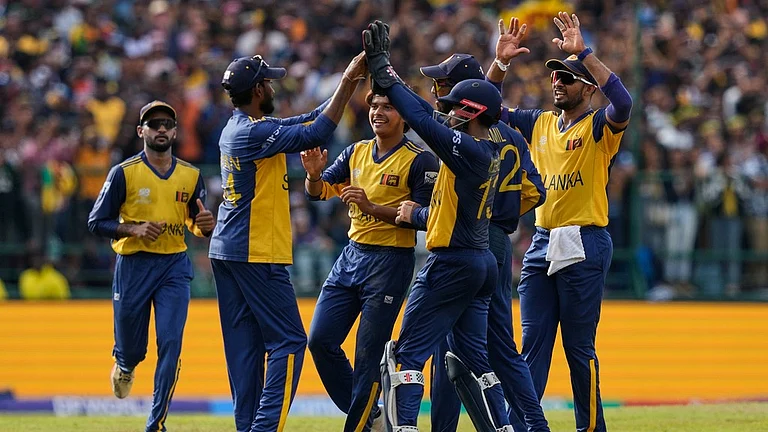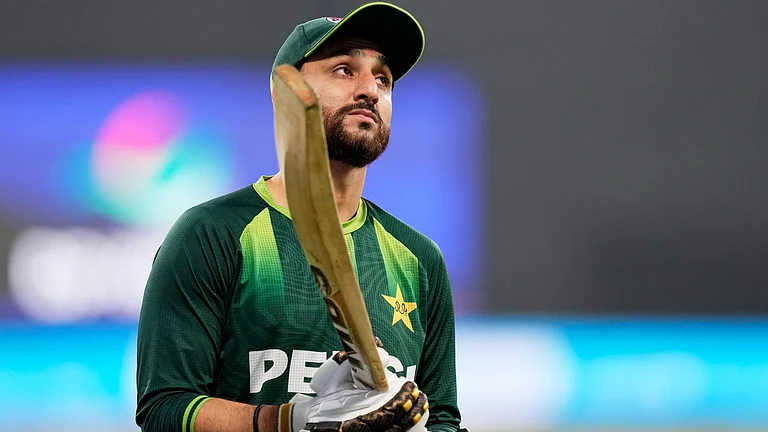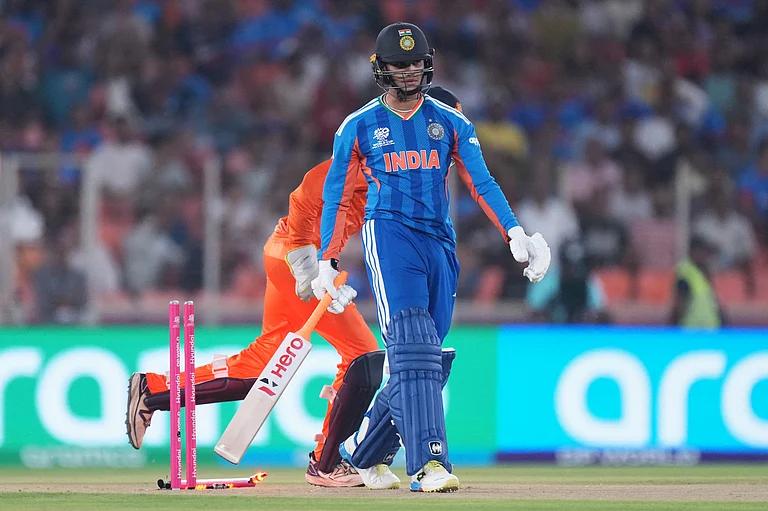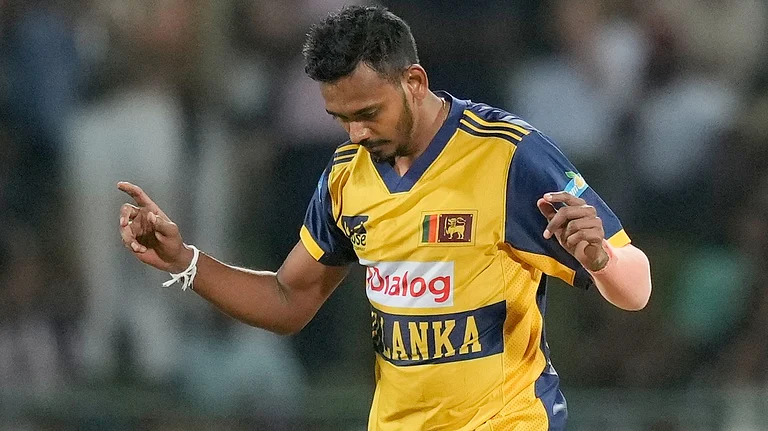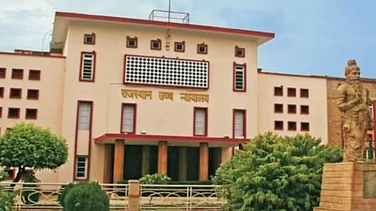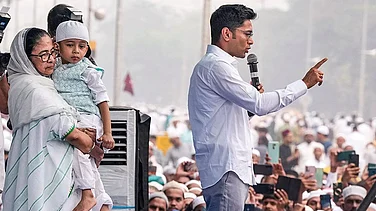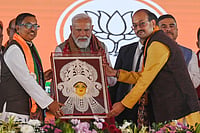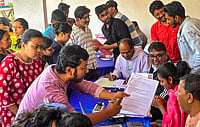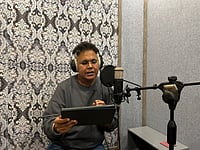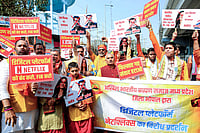Prime Minister Narendra Modi on Friday, took to social media to bring to notice the contentious issue surrounding the Katchatheevu Island on the Palk Strait between India and Sri Lanka citing a recent report published by a news publication. The report mentions facts revealed in documents obtained by BJP Tamil Nadu chief K Annamalai in an RTI response which reportedly indicates that Congress never attached much importance to the uninhabited island, leading to Indira Gandhi ceding it to Sri Lanka in 1974. The issue has been raked up in a crucial prelude to the 2024 Lok Sabha polls, where BJP leaders hit out at the Congress for “callously giving away” the island when they were in power. The Prime Minister also hinted at the issue at his rally in Meerut.
Katchatheevu: Its Geography and History
Formed out of a volcanic eruption dating back to the 14th century, the uninhabited island lies in the Palk Strait, to the northwest of Rameswaram coast and to the southwest of Jaffna, Sri Lanka’s northernmost point. The island is home to an early 20th-century Catholic shrine – St Anthony’s Shrine. During an annual three-day festival, with priests from both India and Sri Lanka conducting the service, devotees from both India and Sri Lanka make the pilgrimage to the island. Pilgrims from India are ferried mostly from Rameswaram. According to the agreement between the Indian and Sri Lankan government, the citizens of India are not required to possess an Indian passport or Sri Lankan visa for visiting Kachchatheevu. The administration of the church falls under the Bishop of Jaffna.
In the early medieval period, the island belonged to the Jaffna Kingdom of Sri Lanka. From the 17th century, the island used to be a part of the Ramnad Kingdom of Ramanthapuram. However, historical evidence suggests that the island has been under the control of Sri Lanka across the years of colonisation in South Asia by the Portuguese, Dutch and the British. The island became a part of the Madras Presidency under British rule. However, questions on the island’s ownership were raised during a conference in 1921 where both the Indian ownership of the island tracing it back to the Ramanads and the British Ceylon’s claim over the island based on a survey were considered. The British accepted Ceylon’s territorial claims with the island falling under the administration of the Jaffna Diocese. The issue kept resurfacing and in 1955 when the Civil Aviation of Ceylon showed interest in conducting a gunnery practice on the island based on the belief that the area fell under Madras Flight Information Region, the Civil Aviation Authority in India referred the matter to the Ministry of External Affairs, seeking clarification regarding the ownership of the island. The ownership dispute remained unresolved.
Cession to Sri Lanka and Tamil Nadu’s Concerns
To put an end to the dispute, definitively address international maritime border issues and strengthen diplomatic relations, the then PM of India, Indira Gandhi signed the Indo-Sri Lankan Maritime agreement in 1974, recognising Sri Lankan authority over the island. The island which had been an important bone of contention when it came to fishing rights saw both Indian and Sri Lankan fishermen access it leading to conflict, as the agreement had toed an ambiguous line when it came to fishing rights. The agreement mentioned the Indian fishermen could still access the island but only for resting, drying nets and for visiting the Catholic shrine without visa. The agreement was challenged in the Supreme Court of India as no parliamentary sanction was taken. A further agreement in 1976 restricted fishermen from either country from carrying out fishing activities in the other’s Special Economic Zones. However, the ambiguity ensued with the geographical positioning of the island.
The Sri Lankan Civil War had an effect on the agreements as Indian fishermen went into Sri Lankan waters hampering Lankan nets and fishing activities as the Navy primarily dealt with cutting off the LTTE’s weapon smuggling lines. However, following 2009, numerous instances of fishermen getting deep into Lankan waters being arrested and tortured by Lankan authorities have been brought to public notice, leading to outcries surrounding reclaiming the island. The issue has been an important one for the people of Tamil Nadu as the state government was not consulted before the cession of the island. In 2011, the Tamil Nadu government led by the chief minister of Tamil Nadu, J. Jayalalithaa filed a petition in the Supreme Court arguing that the declaration of the 1974 and 1976 agreements were unconstitutional, and that it had directly affected the rights and livelihoods of Indian fishermen. The Union government’s stand on the issue has remained undeterred under the Congress, with the BJP government also failing to get any considerable headway in finding a solution.
Recent Political Exchange: BJP's Strategic Plan?
Following PM Modi’s post on X, which talked about the Congress government callously giving the island away and how “this has angered every Indian and reaffirmed in people’s minds- we can’t ever trust Congress! Weakening India’s unity, integrity and interests has been Congress’ way of working for 75 years and counting”, several other BJP leaders took to the platform to throw flak at the Congress.
“Slow claps for Congress! They willingly gave up Katchatheevu and had no regrets about it either. Sometimes an MP of the Congress speaks about dividing the nation and sometimes they denigrate Indian culture and traditions. They only want to divide or break our nation,” said Amit Shah in a post on X.
In response, Congress President Mallikarjun Kharge responded to the PM saying, “On the eve of elections in Tamil Nadu, you are raising this sensitive issue, but your own government’s Attorney General, Shri Mukul Rohtagi, in 2014 told the following to the Supreme Court: ‘Katchatheevu went to Sri Lanka by an agreement in 1974. How can it be taken back today? If you want Katchatheevu back, you will have to go to war to get it back. Pradhan Mantri ji, you should tell, did your Govt take ANY steps to resolve this issue and take back Katchatheevu?" Kharge said
DMK, part of the INDIA bloc, replied to the PM through its spokesperson by saying, "Startling that the Prime Minister's eyes have been opened by a news article based on an RTI query filed by his party person and information provided by his government on an issue that is nearly 50 years old." They further clarified that DMK’s stand (disapproval of the cession) on the island’s issue has always remained the same. Tamil Nadu Chief Minister and DMK leader MK Stalin had also written a letter to PM Modi ahead of Sri Lankan Prime Minister Ranil Wickremesinghe’s visit to India last year, where he asked him to make all diplomatic efforts to "retrieve Katchatheevu as it will only re-establish the historical fishing rights and provide permanent relief to our fishermen."
Many analysts and experts have held that these statements come in the light of BJP trying to appeal to the Tamil population just before the Lok Sabha elections. According to surveys, Tamil Nadu is predicted to be one of the major roadblocks to BJP-led NDA’s momentum in the elections. Critics have pointed out how these statements in tandem with PM Modi’s first individual interview, clad in a traditional veshti, to a Tamil channel clearly point at the BJP’s attempt to desperately woo voters in the DMK-ruled state.








